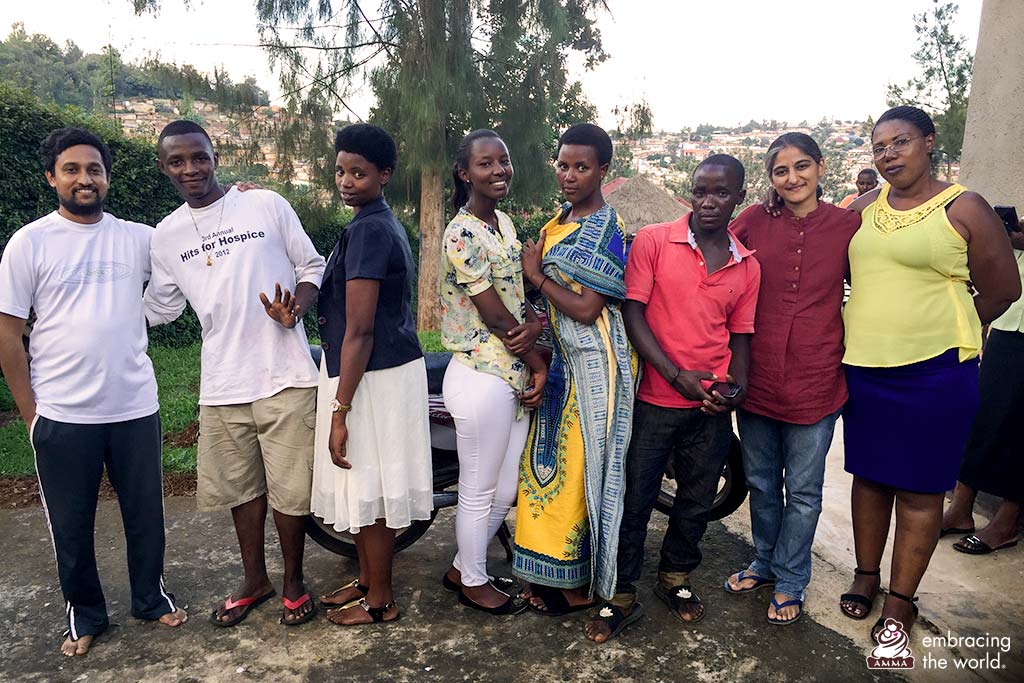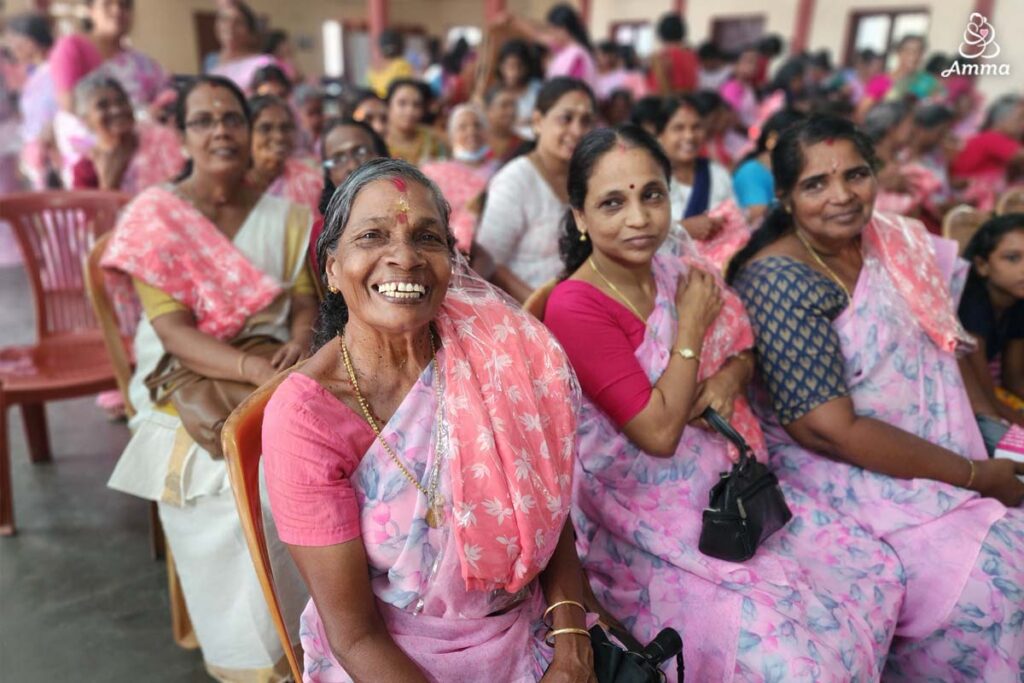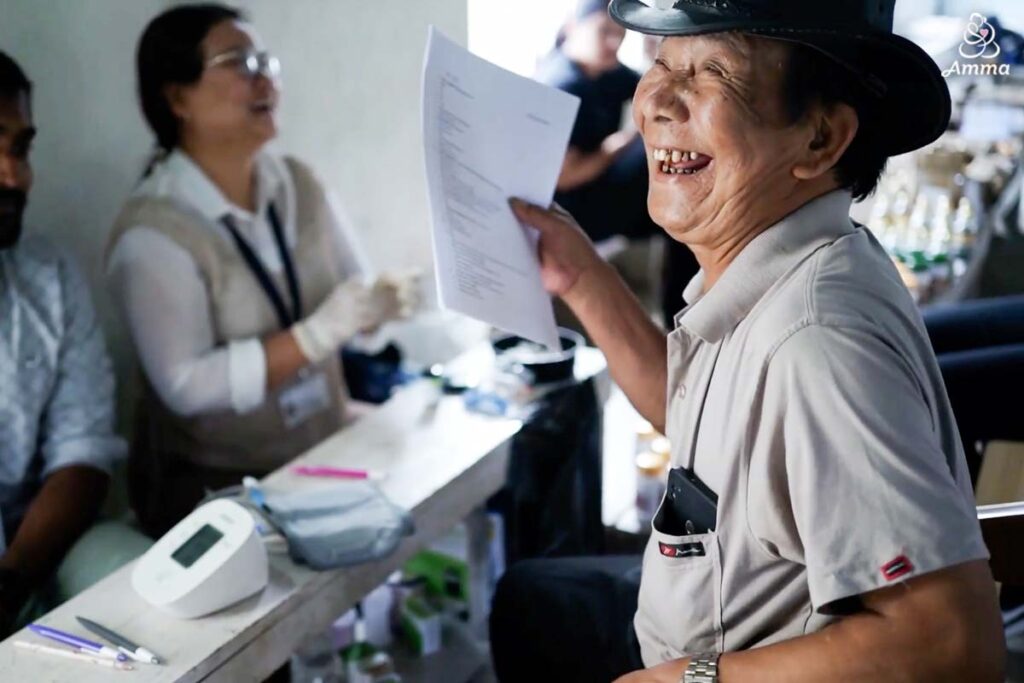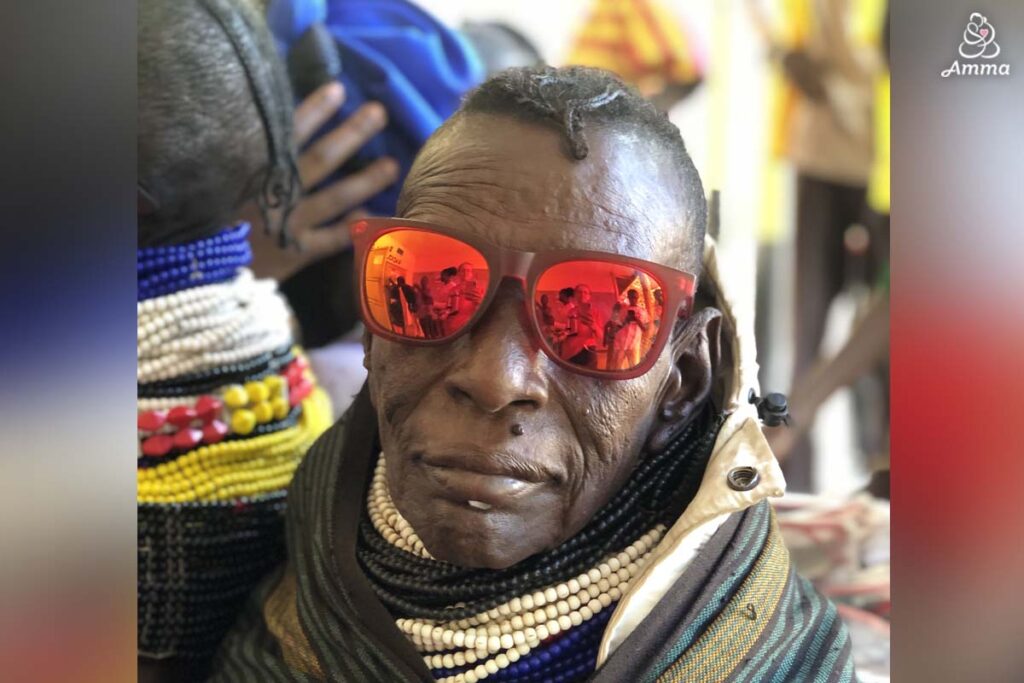AMMACHI Labs travelled to Rwanda to pilot its ICT-enhanced (information and communications technology) motorcycle repair course for the first time outside of India. 25 people from two separate locations took part: 20 students from the Integrated Polytechnic Regional College (IPRC), a premier vocational training institute in Kigali, and five students from the Circle de Sportiff slum, located in the city’s outskirts.
“I’m thankful for where you have brought us to,” said Deborah S., a course student from Circle de Sportiff. “We are committed and going to pursue this training and go even further, so that we can achieve something and develop our own country.”
Amrita Vishwa Vidyapeetham’s AMMACHI Labs has been helping underserved communities in India through computerized vocational education and training (CVET) since 2009. In 2016, UNESCO recognized AMMACHI Labs’ CVET methodology as a TVET Promising Practice for technical and vocational education and training that could be replicated in developing and resource-restricted countries.
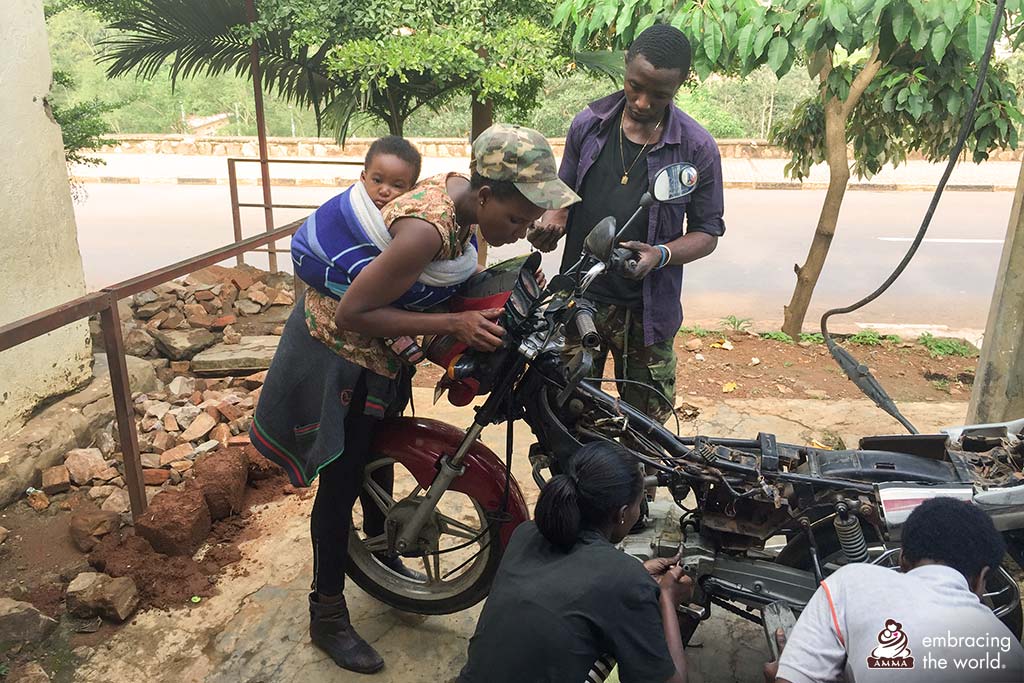
In April 2018, Ajay Balakrishnan, the Content Development Manager, and Srividya Sheshadri, PhD Research Associate, travelled to Rwanda to pilot the motorcycle repair course for two weeks.
“The objective of the pilot was to improve the skills of the diverse groups of participants by expanding their access to quality skill training using technology,” said Balakrishnan.
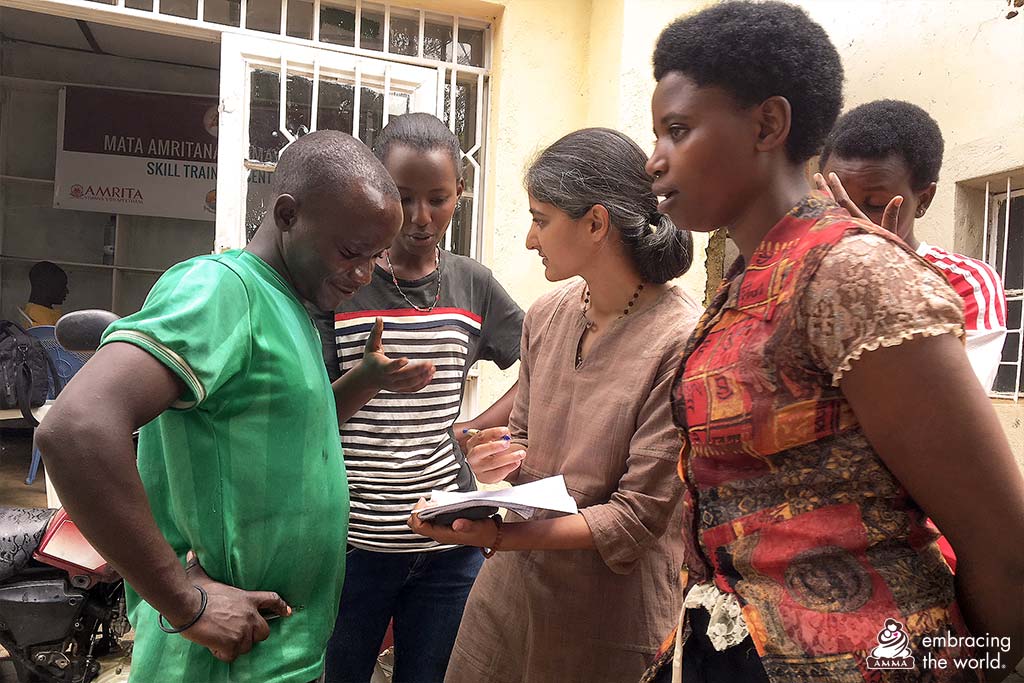
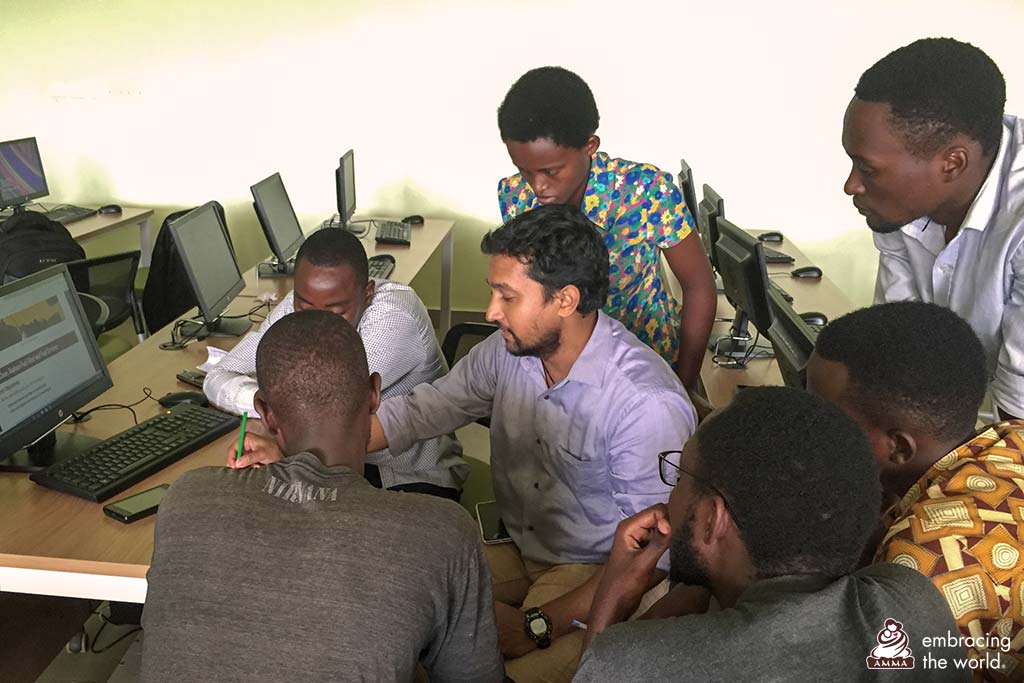
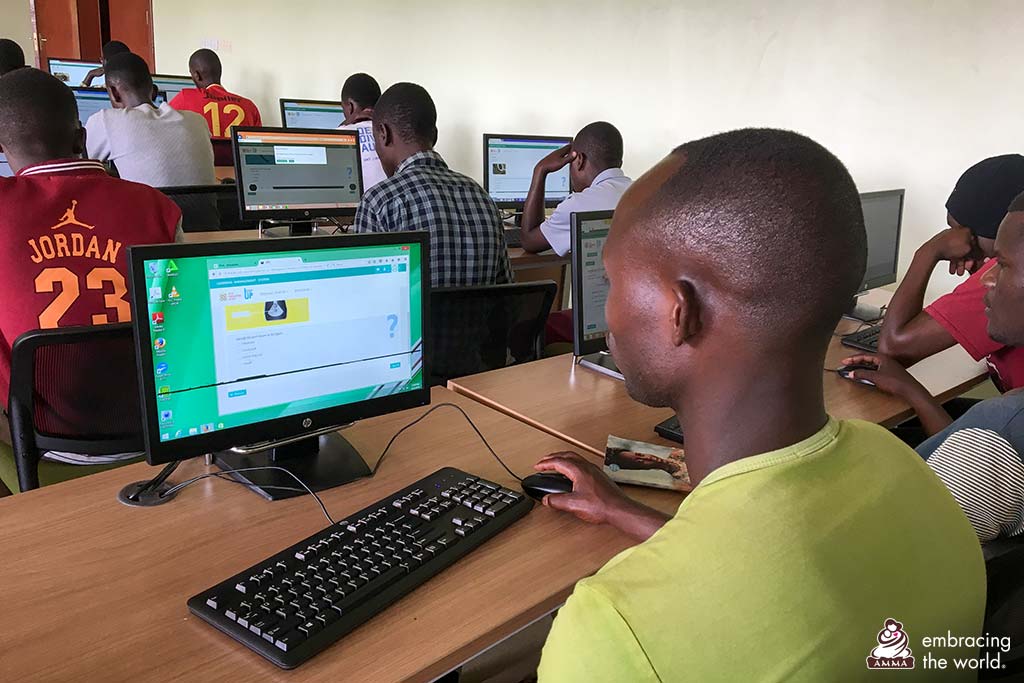
The pilot was implemented in a formal setting at IPRC and an informal setting at the Circle de Sportiff slum. In the vocational institute, the pilot took place in partnership with STEP Innovations Africa. The IPRC students were already enrolled in a three-year diploma course in automotive engineering when they were selected for the training. They were motivated to participate because the motorcycle repair course focuses on an additional set of profitable skills – motorcycle repair – not covered in their primary course.
“Digital learning simplifies the amount of teaching. When students are watching the video, they cannot be distracted and are engaged. It also aids the trainer to use less energy, clarify points and help students understand what they learned from the videos. This is a good manner of teaching and I think our government should implement this,” said Frederick, an IPRC Instructor.
The informal setting of the training program in the Circle de Sportiff slums emerged spontaneously and in response to requests from the community to give people a chance at gaining skilled employment. Given Rwanda’s high rate of poverty and unemployment, local leaders and community members said that helping the youth there was crucial. The majority are unable to pursue higher education or access formal skill-development opportunities.
A community-awareness program and interview process determined those in need of skilled employment and who were the most motivated to learn. Five unemployed youth were selected – three girls and two boys between 18 and 23.
“It was inspiring to see how quickly a community of learning and practice emerged among the students. From the beginning, the students displayed this ability to help each other learn, like a team,” said Balakrishnan.
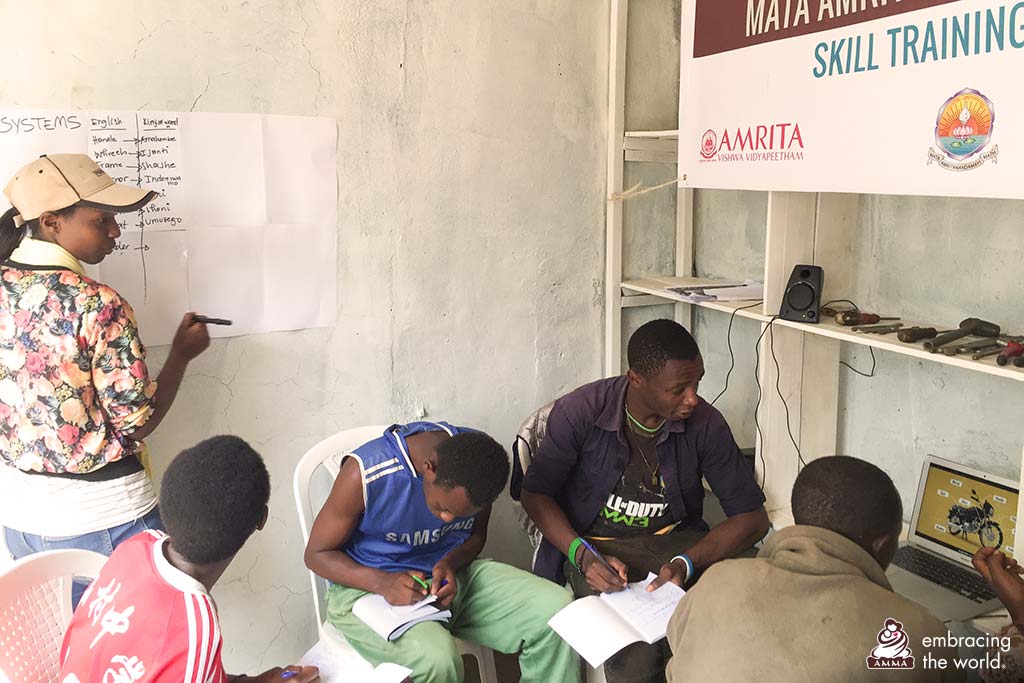
Training in both sites consisted of computerized theoretical sessions, followed by practical tasks on an actual bike, supervised by an instructor. The students’ competencies were finally assessed in both training sites, through a formal theoretical assessment and practical exam.
“We realized that our years of experience in setting up training centers in remote Indian villages is what made it possible for us to set up training in the slum quickly and effortlessly,” said Srividya Sheshadri.
“Given the limited resources and the first time this course was being deployed in a location outside India, we intentionally maintained a small batch size to ensure we could carefully monitor and evaluate the effectiveness of the training methodology.”
The team plans to eventually publish their findings, contributing to an emerging area of research that has been studying the impact of technology-enhanced vocational and life skill development on community development and empowerment among women learners in rural in India.
Towards the end of the two-week pilot course, the IPRC students and students from Circle de Sportiff had the opportunity to meet and share their learning experiences. They also discussed their plans for the future, practised common repairs together and received supportive guidance for post-course plans through the IPRC entrepreneurship cell.
The response to the experience was extremely positive. The village chief said, “As the small community of Circle de Sportiff, we are very grateful to Amrita for what they taught us. We appreciate the efforts they put in our community to lead us to somewhere.”
In fact, the students of the Circle de Sportiff slum and of IPRC plan to continue their learning. They are starting the process of forming a cooperative that will function as a motorcycle garage and school to train others interested in motorcycle repair. This would become the first garage in Rwanda run by women mechanics.
“This pilot class shows the potential and need for ICT-based skill development in developing countries outside of India,” said Prof. Bhavani Rao, Director of Amrita’s AMMACHI Labs. “Such programs are particularly apt when it comes to reaching communities that cannot access formal streams of education and formal employment. Continuing to support the group in forming their cooperative to maintain and leverage their skills to earn an income is the next critical step.”


